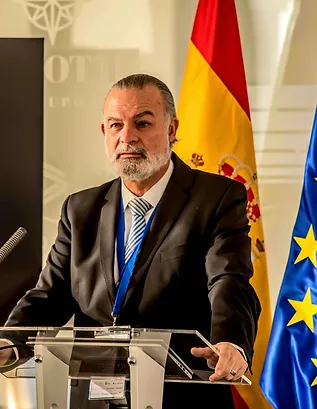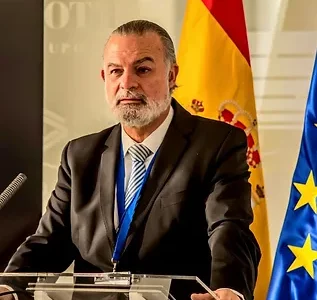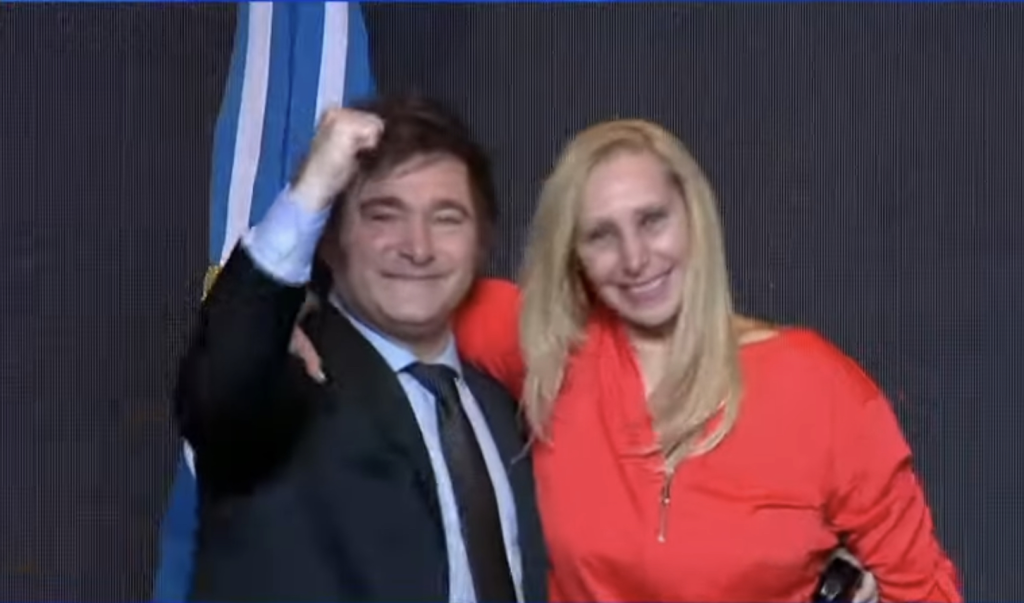JESÚS GONZÁLEZ MATEOS
SÁNCHEZ OR THE DADAIST POLITICS OF THE IMPOSSIBLE

When, six months ago, the Socialist Party lost the regional and local elections to the Popular Party, nobody gave a single penny for the future of Pedro Sánchez as President of the Spanish Government. He had lost almost all the Autonomous Communities and the mayoralties of the main cities in Spain and, without thinking twice, he dissolved the Cortes and called a general election. Audacia sum, when practically all the polls showed him as the loser and announced a coalition government between the Popular Party and the ultra-right-wing Vox.
It was not the first time that Sanchez surprised his own and strangers. The re-elected President of the Government has forged his figure by winning impossible battles. The first, no less than against his own party colleagues, when after being expelled from the general secretary in 2016, he managed to win in the primaries of his party and rise from the ashes the following year. In 2018, he becomes the first president of Spanish democracy to come to office as a result of a motion of censure against the then head of the Executive, the popular Mariano Rajoy. And he has also been the first to form a coalition government and bring a communist-oriented party, Podemos, into government in 2020.
A government that had to face a pandemic and an economic crisis resulting from the war in Ukraine. Sanchez has faced all these vicissitudes without complexes and with an enormous capacity to change his mind, regardless of the principles he was leaving along the way. Eminently tactical, his strategy consists of living from day to day and getting along with everyone in order to stay in power. All this has earned him personal successes, although his party has been losing power in all the territories and, in the last elections, he was left sixteen seats behind the PP. A journey woven in political instability, where his main virtue is to divide his adversaries, to lead from the minority and chaos.
But there is no doubt that the main element that has fueled the permanence in power of Sanchez, is the existence of a far-right party in the Spanish political scene. Without Vox he would certainly not be President of the Government today. The mobilization of the left that he achieved in extremis in the last general elections of July 23 was forged thanks to the pacts of autonomous governments between the PP and Vox, a textbook error of the popular president, Núñez Feijóo, and the fear that among the nationalists and independentists inspires the possibility of seeing in Moncloa a council of ministers of the right and the extreme right. That same panic that has them tied to Sánchez and that makes any option of a motion of censure against him impossible, since he would never vote with Vox.
AMNESTY, HIS LAST SOMERSAULT
Last Thursday, Pedro Sanchez was elected president by the Congress of Deputies with a comfortable majority. He has managed to add to his 121 seats the support of 58 deputies of the radical left, nationalists and independentistas. A conglomerate apparently impossible to manage that glimpses an uncertain legislature. Making it even more difficult, Sánchez has sent his troops to negotiate the essential votes of the Catalan pro-independence supporters of Junts per Catalunya to Brussels, face to face with the former president of the Generalitat, Carles Puigdemont, fugitive from the Spanish justice system. He has gone from amnesty never, to amnesty tomorrow, under the solid selfish argument of making a virtue out of necessity.
A good part of the Judiciary, the center-right media and millions of Spaniards who demonstrate day in and day out against what they consider a betrayal of the homeland or, at least, what they understand by Spain, have come out against him. The reality is that it has split the country in two, with a level of tension that we have not suffered for a long time. But reality is stubborn and in a parliamentary regime such as the Spanish one, Sanchez and his government legitimately and democratically hold power. From here, he faces a tortuous political path. Right-wing voters outraged and ready to stop at nothing in their demonstrations. Lawsuits against the amnesty law that will have to go through different courts until finally reaching the Constitutional Court, where in theory it has control. And, finally, the Court of Justice of the European Union, which will also foreseeably have to rule on the law.
On the other hand, its wily parliamentary majority may be put to the test, vote by vote, in the Congress and its initiatives may be stopped, time and again, in the Senate, the Upper House, where the PP has an absolute majority. However, it is true that, after the previous legislature of great legislative production, it has covered the reform milestones requested by Brussels and is going to count on no less than 90,000 million euros of European aid. Moreover, the Spanish economy is currently the fastest growing and has the lowest inflation among the large EU countries.
Nobody knows where the legislature, which began in August and now has a new government with Sánchez once again at the helm, is heading. Any political leader would respect, if not fear, the situation that the Executive is going to face. But the word fear is precisely one that does not exist in Sánchez’s vocabulary. In his mixture of arrogance and boldness, there are no limits and even less if the adversary tries to impose them. For the moment he is already president and tomorrow will be another day… or July will be another month and who knows if we will not see him appear in Brussels.
Jesús González Mateos, Spanish journalist, director of Aquí Europa and Canal Europa. President of EditoRed.
This text is for free use. If you use it, please cite the author and EditoRed.



